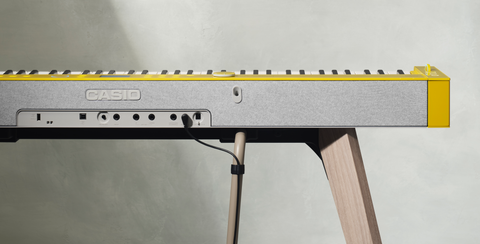Why the Best Musos Can All Play Piano

There is a very strong argument to be made that the electric piano is the best instrument to learn first. Whether you dream of playing the violin like Andre Rieu, or thumping the tubs like Travis Barker, you will be better for it if you understand how the piano works. Indeed many accomplished musicians can attest to the fact that other instruments become easier once you’ve understood the piano.
Firstly, it is the only instrument that allows you to play seven octaves. An electric guitar or violin? Four. That means the range of possibilities for what you can play is almost twice as large on a piano. And if it is an electric piano, it means you can change the traditional sound to become strings, choir, harpsichord or a guitar tone. The world of music is opened up to you like with no other instrument.
This also has flow on effects for how you read sheet music. Because the keyboard covers the notes from both the treble and the bass clefs, you become much more well rounded than the guitarists who are stuck in their Every Good Boy Deserves Fruit world, or the bassists who cannot move beyond Good Boys Do Fine Always. If you decide to venture onto another instrument after the piano, you are set up to succeed before you’ve even started.
Secondly, the electric piano allows you to play both rhythm and melody at the same time. Most other instruments approach these as separate styles, and it is not until you are very good that you can begin to integrate them (think Classical Gas as a good example of how this might sound on the guitar). With a piano, playing both at the same time becomes your bread and butter. You will know to fit into the pocket of a rhythm section which will become incredibly helpful if you pick up an instrument like the bass or anything percussion. On the other hand (quite literally), you’ll understand how to create the beauty of a melodic line which will serve you well if you were to become a vocalist, lead guitarist or any other stringed instrument. In most cases, these ‘lead’ players actually tend to complement the other musicians better if they’ve come off the piano because they intuitively know how to make the melodic blend with the rhythmic.
Finally, the piano is technically a stringed instrument, yet it requires percussive movement to produce sound. So, you are really covering all bases of musicianship on the piano. Of course, if it happens to be an electric piano, you can adjust the tone so that the percussive playing is complemented by a percussive tone. You can become a multi-instrumentalist without ever leaving your keyboard!
It should come as no surprise when we see famous musicians move off their main instrument and begin to play the piano. The chances are good that they started there, and that is why they became so good at their own instrument.
Get on the piano. You’ll never look back.












